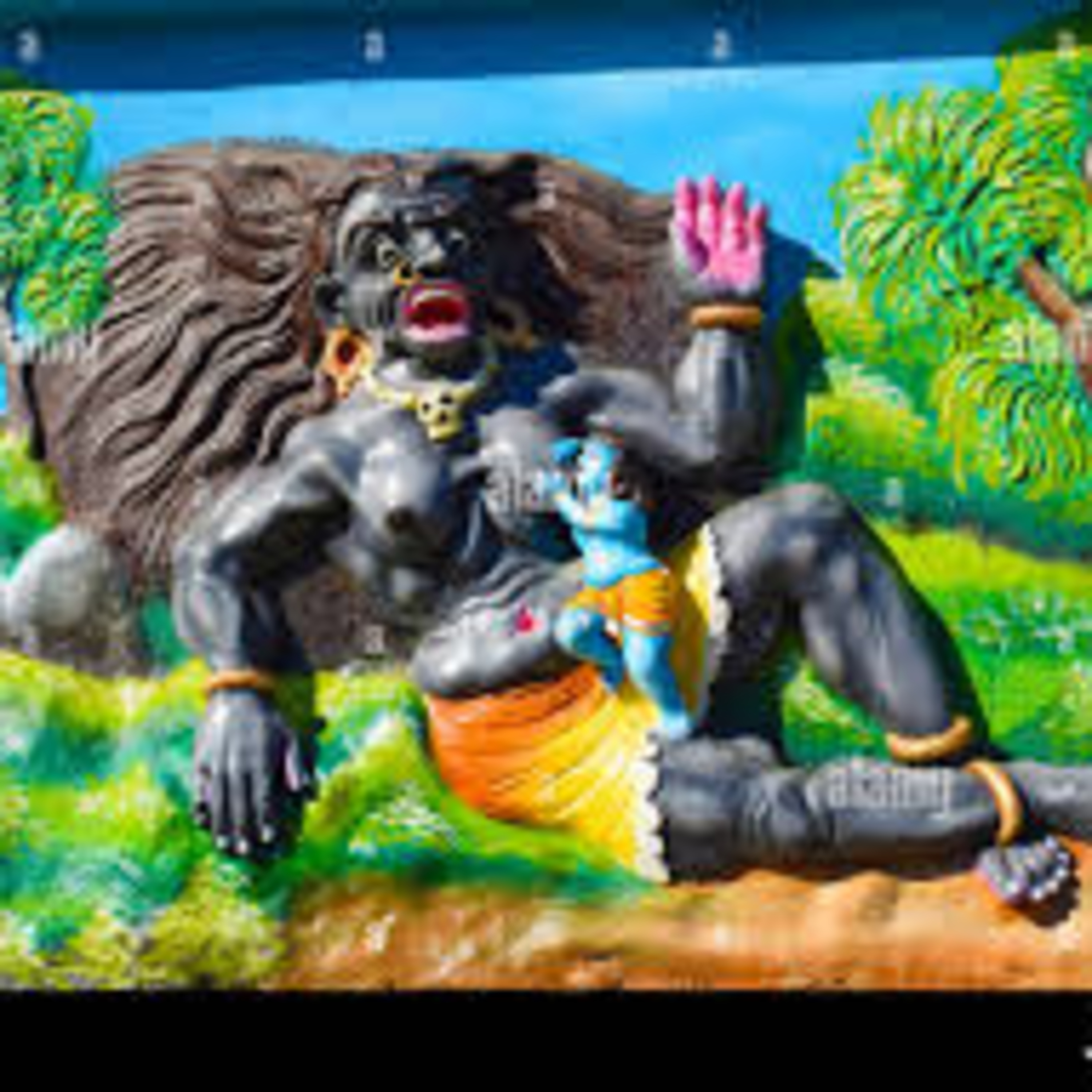Dashakam 041 Boothana Dahanam
- Author
- Santana Dharma The Life
- Published
- Thu 14 Aug 2025
- Episode Link
- https://podcasters.spotify.com/pod/show/santana-dharma-the-life/episodes/Dashakam-041-Boothana-Dahanam-e36m2i3
This episode is significant because it vividly portrays the cremation of Poothana, the demoness who came to kill the infant Krishna by feeding him poisoned milk. Upon attempting this, Krishna sucked her life out, destroying her evil intentions, but through her act, she inadvertently attained salvation due to her contact with the divine child.
Key significance points include:
The awe and fear experienced by the cowherds and villagers upon witnessing Poothana's formidable form and her eventual death.
The respectful and reverent burial rites performed by the villagers, purifying her remains and dispelling the fear she had caused.
The joyous playfulness and innocence of baby Krishna, symbolizing divine bliss and the victory of good over evil.
The Dashakam emphasizes Krishna's compassion and the transformative power of his grace, which can redeem even those with evil intent.
It highlights the protective aspect of Krishna’s divinity and the spiritual joy that his presence brings to devotees.
Thus, Dashakam 41 celebrates Krishna’s divine play, his mercy in granting salvation even to foes, and reassures devotees of divine protection and ultimate spiritual triumph
Namaskarams and Dhanyavadaha to Smt Savithri Ramesh and Smt Asha Murarka for their help.
